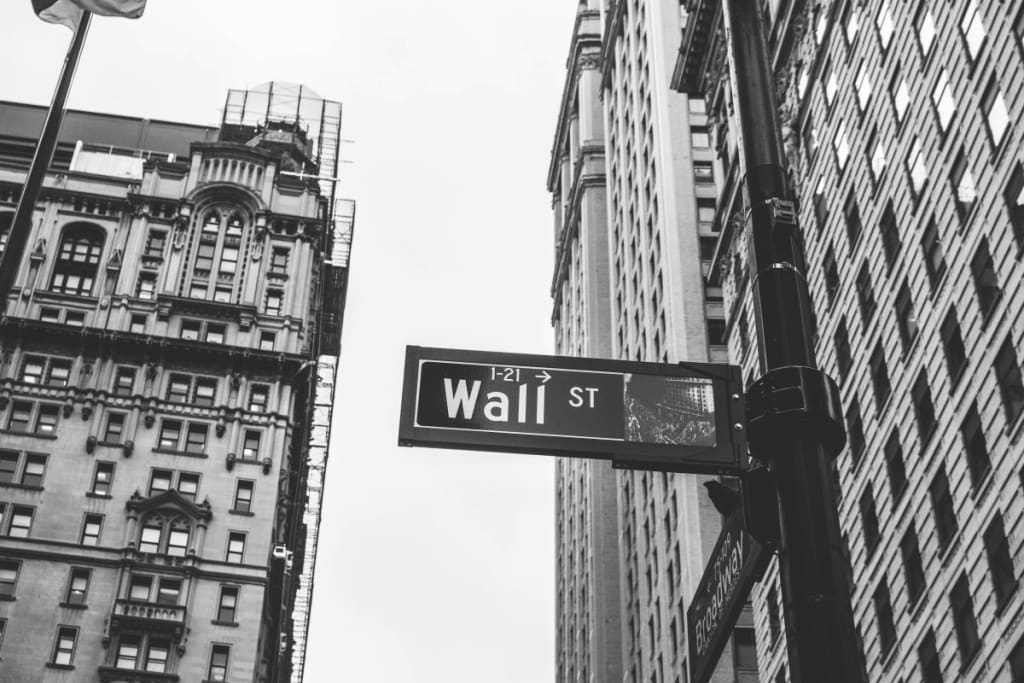Black Monday: The Biggest Stock Market Crash in History
What is Black Monday? Why and How did it happen? How did it change the world?

Black Monday is a term used to describe the catastrophic stock market crash that occurred on October 19th, 1987. On that day, the Dow Jones Industrial Average plummeted by 22.6%, marking the largest one-day percentage drop in stock market history. The crash sent shockwaves through financial markets around the world and sparked fear among investors. The events of Black Monday are widely considered a turning point in modern financial history and have since been studied in great detail by economists and financial experts. In this article, we will examine the causes of Black Monday, its impact on the global economy, and its lasting legacy in the world of finance.
What is Black Monday?
Black Monday is used to refer the stock market crash that occurred on October 19th, 1987, when the Dow Jones Industrial Average (DJIA) plummeted by 22.6% in a single day, marking the largest one-day percentage drop in stock market history. The crash was felt globally and resulted in widespread panic among investors, causing a significant decline in the value of stocks and a decline in overall market confidence. The events of Black Monday continue to be studied and remembered as a turning point in modern financial history.
What are the causes of Black Monday?
The causes of Black Monday, the stock market crash of October 19th, 1987, are complex and multi-faceted. Some of the main factors contributing to the crash include:
High market volatility: In the months leading up to Black Monday, the stock market was experiencing high levels of volatility, with prices fluctuating rapidly.
- Overvaluation of stocks: Many experts believe that stocks were overvalued at the time, making the market ripe for a crash.
- Interest rate hikes: The Federal Reserve raised interest rates in 1987, making it more expensive for investors to borrow money to invest in the stock market.
- Computerized trading: Black Monday was one of the first instances of widespread computerized trading, and many experts believe that the speed and efficiency of automated trading systems contributed to the rapid spread of panic.
- Global events: Political and economic events in Europe and the Middle East, including the Iran-Contra Affair, added to market instability.
- These factors combined to create the perfect storm, leading to the largest one-day percentage drop in stock market history and causing widespread panic among investors.
The Effects of Black Monday on Global Economy
The effects of Black Monday, the stock market crash of October 19th, 1987, were felt globally and had a significant impact on the world economy. Some of the main effects include:
- Decline in stock values: The rapid drop in stock prices on Black Monday resulted in a significant decline in the overall value of stocks, causing losses for many investors.
- Loss of confidence: The crash caused a loss of confidence in the stock market and financial markets more broadly, which took years to recover.
- Downturn in economic activity: The decline in stock prices led to a downturn in economic activity, with many companies cutting jobs and reducing spending.
- Increased regulation: In response to the crash, governments around the world introduced new regulations aimed at preventing similar events from occurring in the future.
- Shift towards more conservative investing: Many investors became more conservative in their investments following Black Monday, with a greater focus on safer, less volatile investments such as bonds.
The effects of Black Monday were felt for years after the event and continue to shape the world of finance and investing to this day.
Black Monday's Legacy in the World of Finance
Black Monday, the stock market crash of October 19th, 1987, has left a lasting legacy in the world of finance, influencing investment strategies, market regulation, and economic thinking in the decades that followed. Some of the main legacies of Black Monday include:
- Increased regulation: In response to the crash, governments around the world introduced new regulations aimed at preventing similar events from occurring in the future.
- Shift towards more conservative investing: Many investors became more conservative in their investments following Black Monday, with a greater focus on safer, less volatile investments such as bonds.
- Emphasis on risk management: The events of Black Monday placed a new emphasis on risk management in the world of finance, leading to new approaches and tools for mitigating market risk.
- Advancements in technology: The crash highlighted the importance of automation and technology in the financial industry, leading to the development of new trading systems and platforms.
- Greater market transparency: The crash also resulted in a push for greater transparency in financial markets, with new reporting and disclosure requirements put in place.
Overall, the legacy of Black Monday is one of increased awareness of market risk and the importance of sound risk management practices in the world of finance.
About the Creator
MetaphysicalPony
Not much to say; always been in love with reading, even more with sharing and writing!






Comments
There are no comments for this story
Be the first to respond and start the conversation.